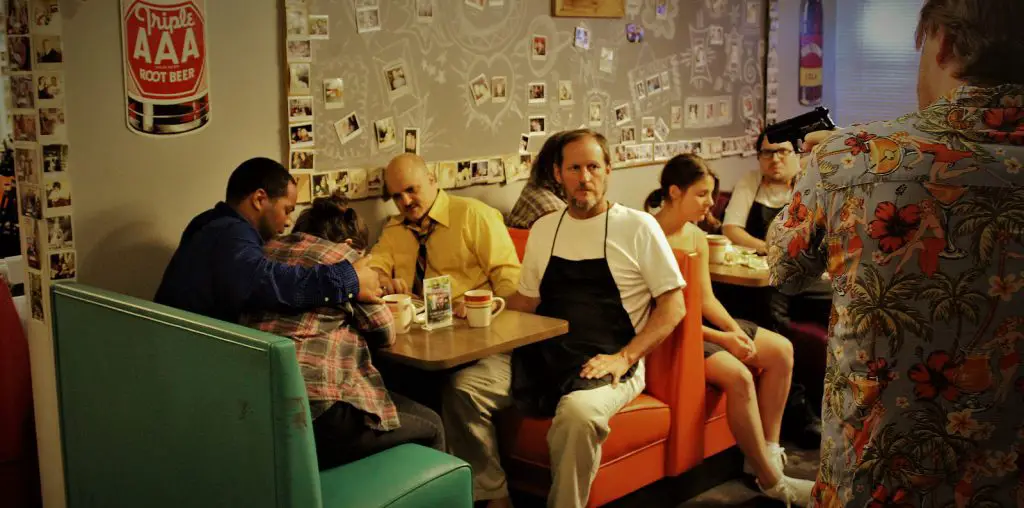
Will, a cartographer working in Armenia, and Gabardine, an Armenia photographer with wanderlust, meet and instantly feel an attraction so strong that they decide to take a road trip across the country together in Braden King’s first feature narrative film, HERE. Combining experimental effects with linear narrative, director Braden King attempts to reproduce the feelings that being on the road inspires. Careening through beautiful scenery and enjoying the company of strangers is romantic and thrilling – especially as Will and Gabardine start to fall in love – but it can also try the strength of any seasoned couple and this relationship is no different.
For me, however, this reproduction doesn’t quite add up to the genuine feelings of the road. While King’s love of the Armenia landscape is transferable to audiences in this piece (the landscape cinematography is gorgeous), the two protagonists don’t seem to deserve that same love. Will comes across as an alcoholic with a rage problem, and Gabardine is never redeemed from selfishness. I didn’t like either of them as much as the camera did, which spent a long time dawdling over her neck and cheekbones (absolutely stunning). Yes, HERE is beautiful to look at, but Gabardine herself explains the problem with the film when she accuses Will of being surface level by interacting with locals as though he is a tourist of people. The film echoes Will and Gabardine’s habit of cataloguing stories through pictures and maps instead of fully engrossing themselves in the experience.
Part of the superficial nature of the film lies in Ben Foster’s performance. As he gulps down homemade vodka and gives Gabardine the silent treatment I have a hard time buying him as any kind of romantic lead. He gives off an air of misanthropy that Gabardine is never allowed to transcend. His character treats the locals like souvenirs and, ultimately, I don’t believe he felt any differently about his new crush. She was merely another notch in his road trip experience belt. The film means to be romantic, but by the end I just felt kind of disturbed. Lubna Azabel, on the other hand, shines through the subtle hatred. Though she never quite gets over her immaturity, she at least comes across as sincere.
Even though I wasn’t thrilled with the characterizations in HERE I was still impressed by it. The overarching look and tone of the movie lulled me into a kind of lovely acceptance that was only broken when the credits rolled and I had to actually think about what I just saw.
